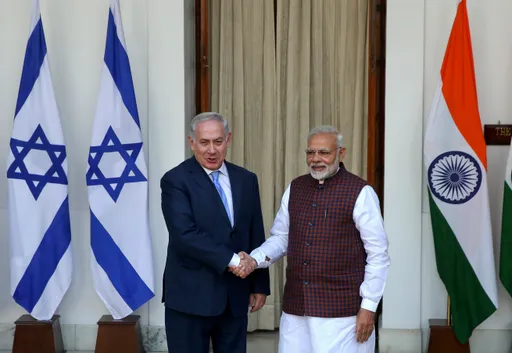Regional adversaries Lebanon and Israel seem closer than ever to resolving their longstanding maritime border dispute through US mediation.
While his shuttle diplomacy may not have borne fruit just yet, US mediator Amos Hochstein struck a hopeful note after meeting Lebanese President Michel Aoun on Friday.
Hochstein said he was “optimistic” for a border demarcation agreement, pointing to “good progress” in ongoing negotiations.
Lebanon and Israel are locked in a dispute over a maritime area of 860 square kilometers (332 square miles), according to maps sent by both countries to the UN in 2011.
The area is rich in natural gas and oil.
Starting in 2020, five sessions of indirect negotiations have been held on the issue under UN sponsorship and US mediation, with the latest round held in May 2021.
Tensions flared again this June after a floating production, storage and offloading unit from Energean – an energy exploration and production company listed in London and Tel Aviv – arrived in the disputed Karish field.
READ MORE: US to reward tips on illegal maritime activity in Middle East
Biggest obstacle
The biggest obstacle in the way of an agreement appears to be Hezbollah, the Iran-backed group that wields major influence in Lebanon.
Hezbollah chief Hassan Nasrallah has threatened to use force to prevent Israel from extracting gas in the disputed area, warning that “resistance is Lebanon’s only strength” in talks with Tel Aviv.
The group has also launched unarmed surveillance drones toward Karish, a move the Lebanese government labelled “unacceptable” and “outside the framework of the state’s responsibility and the diplomatic track within which negotiations are taking place.”
READ MORE: Hezbollah asks Lebanon to use it as leverage in sea dispute with Israel























